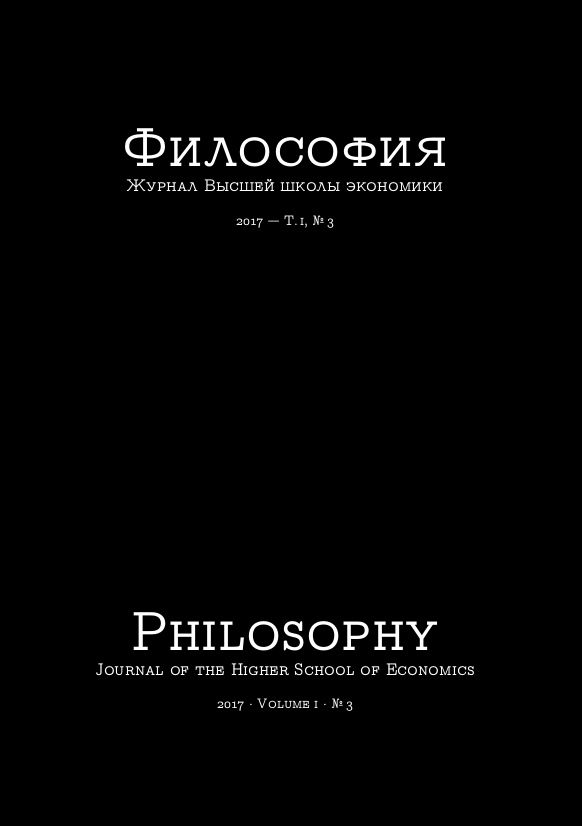Andrey Bolotov and the Becoming of Subjectness in Eighteenth-Century Russia: Part II
Abstract
The issue of subjectness and subjectiveness in Eighteenth-Century Russia is examined using the example of Andrey Bolotov. The process of identifying oneself as a separate individual who acts by himself is described; such a process is enabled by discovering and inventing one’s inner world, when a person, defining the characteristics of his subjectiveness, marks himself as a subject of thought and a subject of an action. It is proposed that the development of subjectiveness be promoted by the differentiation of the social roles, which led to the alienation from the social statuses and functions, which in turn compelled one to engage in self-reflection, to start looking for one’s unique inner world, to which an individual would have privileged access. The author analyses the expansion of the role repertory of the Russian nobleman of XVIII century and its influence on the rise of the interest in the personal emotional experience. At the same time in the context of traditional normativity and the dominance of the State an actor, who has discovered his distinction from the outer world, was compelled to resort to the wiles and hypocrisy, which under certain conditions might have boosted his search for selfhood. The author stresses that there were necessary some preliminary changes in the social structure and, at the same time, a particular expansion of the different narratives about the inwardness. Further, he describes how Andrey Bolotov moves away bit by bit from his social environment due to his seizure from his official political and cultural roles. As a result, Bolotov was obliged to resort to hypocrisy and other tricks for not complicate his interactions with the State and their neighbors.






